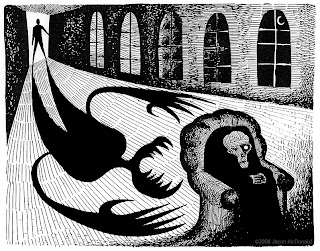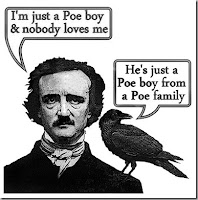The book,
Civilization and its discontent, and the movie, fight club, show how our
happiness is repressed by civilization and our misery is inflated like a
balloon as if it will explode if our contention is repressed too much. But if
we were to break the laws of civilization, we will be better off into establishing
happiness, despite of the fact that, ironically, there’s double edged sword by
making others into misery.
In this “Civilization
and Discontent”, Freud is saying that when we want happiness in our
civilization, we will always have “laws” in order to assure our happiness in
the society, but at the same time, we are “largely responsible for our misery”
in that these “laws” are suppressing our happiness and instead making us
“misery” as shown in this quote, “This contention holds that what we call our
civilization is largely responsible for our misery”. Then, he says that “we
should be much happier if we gave it up and returned to primitive conditions”.
It should be best to return to “primitive conditions”, in other words,
unconsciousness, such as affection and emotion, without any laws to support our
civilization and that will make us “much happier”. This is exactly the same in
the “Fight Club” in that when Tyler Dirt established the “fight club”, he
established it so that it will be hidden from the civilization. By doing so, no
“laws” from civilization will uphold them from beating up each other. This
“fighting” is in fact making the men in “Fight club” to be animal like, to upheaval
their emotions from constrained of the laws in civilization. This establishes
them “happiness” without suppressing their own desires. This is exactly the same
thing that happened in Faust, by Goethe. Faust is a very professional man, and
he is there to stride for universal truth of the world. But, he makes a choice
to break this enlightening idea in the civilization, and instead, stride for the
“nature world” in other words, affection and emotions. By doing so, he has been
able to gain “happiness” by gaining a girl that he likes. He is, in other
words, reflects upon both Freud and “Fight Club”. He is breaking the laws of civilization,
which is “enlightenment”, in order to not repress himself from misery in
isolated workplace. Like “Fight Club”, these men who are in fight club are
generally doing the same thing as Faust does, break the laws of civilization in
order to achieve so-called happiness. But there is always double edge sword by
doing so.
According
to Freud, by breaking the law of civilization, it is inevitable that we,
ourselves, will become happy, but, instead, we will make others unhappy by
doing so. This is shown through the movie, “fight club”. As the fight club goes
on, it spreads more and more and it grows bigger as time goes on. Soon, this “fight
club” turns into some kind of Terrorist organization in order to destroy the
credit card companies; thus this project is called the “Project Mayhem”.
Ironically, these men who wanted “freedom” from civilization, but instead they
turned themselves into this organization that hurts other people’s happiness.
By this “Project Mayhem”, credit card companies are destroyed in the end of the
movie. It will be implied that lots of people are destroyed literally and
abstractly as the towers of companies fall down. Likewise, it is the same thing
in Faust too. Once he achieved his happiness, his lover is killed by doing so
because he has broken the law of civilization. He, in other words, hurt someone
else to gain his “happiness”. His civilization does not agree with this
disgrace and it is the same for the fight club too. Freud also mention this
fact in his book in that he “call this contention astonishing because, in
whatever way we may define the concept of civilization, it is a certain fact
that all the things with which we seek to protect ourselves against that
threats that emanate from the sources of suffering are part of that very
civilization”. He is astonished by the fact that we in other words turn
ourselves in group in order to achieve happiness, but at the same time, we are
hurting ourselves instead by hurting others.
Thus,
both the movie and the book explores how we stride for happiness, but at the
same time we are hurting others and even hurting ourselves too.






.jpg)



